Matt Rees's Blog, page 24
June 17, 2010
Cheers for Hitler, and Brits go home
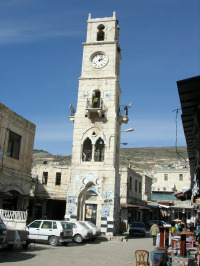 The company you keep can put the culture around you in a new light, let you see it as you haven’t before.
The company you keep can put the culture around you in a new light, let you see it as you haven’t before.That’s true when I travel to different countries and discover that readers in Germany have a particular take on my Palestinian crime novels which differs from the way they look to Americans, for example.
I got to thinking about this when I was wandering the Nablus casbah this week with two German friends. An enthusiastic Palestinian fellow asked me to explain to them how much he appreciated Hitler, and as an afterthought he noted that all his people’s problems are caused by me and my compatriots from the British Isles.
I had just climbed up the old Turkish clocktower in Manara Square at the heart of the casbah with one of the Germans. I’d never seen the door at the bottom open before, but there was a policeman inside on this occasion and he generously allowed us to go up the ladder. On the first balcony, I stepped through more pigeon feces than I’d have thought could possibly gather in one place. It was crusty for an inch or two, then a little slushy beneath. I had a grin all over my face of the kind that tends to appear there when I discover a new corner in a place I’ve often been – and loved being there – before.
Read the rest of this post on my blog The Man of Twists and Turns.
Published on June 17, 2010 01:33
•
Tags:
barry-unsworth, bedouin, berlin, crime-fiction, damascus, dehaisha-refugee-camp, george-w-bush, germany, hamas, hitler, imperial-camel-corps, jerusalem, middle-east, nablus, omar-yussef, ottomans, palestine, palestinians, the-rage-of-the-vulture, the-samaritan-s-secret, tony-blair, turkey, wales
June 12, 2010
Motor sport, Palestinian style
 Their politics might be spinning wheels, but Palestinians are revving engines on the race track.
Their politics might be spinning wheels, but Palestinians are revving engines on the race track. NABLUS, West Bank — For a change, the Palestinians gathered on the main street of Nablus were happy to be going around in circles.
Palestinian politics makes a lot of noise, only to end up spinning its wheels, moving no closer to statehood or peace. But the same combination on the race track is attracting growing attention for the Palestinian Motor Sport circuit.
“I love racing and I love speed,” said Suna Aweideh, the 39-year-old driver from Jerusalem who has become known as “Queen of the Car Races.” “It’s exciting for our people.”
Read the rest of this post on my blog The Man of Twists and Turns.
Published on June 12, 2010 06:27
•
Tags:
bmw, british-council, cars, crime-fiction, formula-one, israel, jericho, jerusalem, jordan-valley, kalashnikov, middle-east, motor-racing, motor-sports, nablus, opel, palestine, palestinians, peugeot, ramallah, red-crescent, west-bank
June 10, 2010
Save me, Middle Eastern ladies, from the nightmare of the World Cup
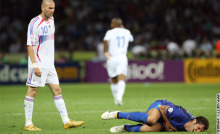 The women of the Middle East are about to save me from the greatest banality known to man. I’m counting on them to care as little about the the World Cup as I do and to keep me entertained until men can once again talk about something other than Wayne Rooney’s groin.
The women of the Middle East are about to save me from the greatest banality known to man. I’m counting on them to care as little about the the World Cup as I do and to keep me entertained until men can once again talk about something other than Wayne Rooney’s groin.Though I’ve long loved to play soccer, I scorn the watching of its endless buildup passes, the constant disappointment of a game which can be won with a single lucky goal, the sport’s failure to rein in rampant cheating and other pathetic behavior by its pampered players.
George Orwell wrote in one of his best essays that international sports – and he meant, mainly, soccer – was a disgusting tribal experience that was intended to keep us filled with nationalistic hate until it was time to have an actual war and go off to kill each other again in earnest. Living in the Middle East, where nationalism is such an incendiary factor and is so often in bloody evidence, I find I have no tolerance for the stupidity of sporting nationalism.
Read the rest of this post on my blog The Man of Twists and Turns.
Published on June 10, 2010 06:47
•
Tags:
fifa, football, george-orwell, international-crime-authors, israelis, jerusalem, mehmet-scholl, middle-east, oliver-sacks, palestinians, soccer, sport, the-new-yorker, tim-howard, tourette-s-syndrome, wales, wayne-rooney, world-cup
June 9, 2010
Big acts cancel, Israel's opera goes on
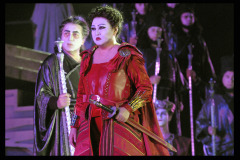 MASADA, Israel — A parade of bejeweled camels, elaborately costumed warriors and prancing horses crossed the stage. Jerusalem had fallen to a conqueror from the east. The high priest predicted disaster and the wrath of a vengeful deity. Three hours later, with searchlights flitting across the rugged face of this ancient fortress, the Jews were freed, the conqueror stood in awe of the God of the Jews, and, oh yes, a fat lady sang.
MASADA, Israel — A parade of bejeweled camels, elaborately costumed warriors and prancing horses crossed the stage. Jerusalem had fallen to a conqueror from the east. The high priest predicted disaster and the wrath of a vengeful deity. Three hours later, with searchlights flitting across the rugged face of this ancient fortress, the Jews were freed, the conqueror stood in awe of the God of the Jews, and, oh yes, a fat lady sang.The Israeli Opera last weekend put on the first performances of its “Nabucco,” Giuseppe Verdi’s greatest early success from 1842, around about where the Romans camped in A.D. 73 when they besieged the 1,300-foot heights of Masada. The company, which is based in Tel Aviv, intends this extravaganza to inaugurate a new annual outdoor opera festival. (There’s also a performance by the great American soprano Jessye Norman, whose services, it should be noted, do not come cheap.)
It might seem a risky proposition to start an annual outdoor opera festival at a time when Israel is isolated not only politically but, increasingly, in the cultural sphere. Pressure from boycott campaigners persuaded Elvis Costello last month to cancel open-air concerts at another historic venue — the Roman amphitheater in Caesarea. This week, alternative rockers The Pixies joined Carlos Santana and Gil Scott-Heron in pulling out of shows in Israel. Pro-boycott protesters have turned their attention to other performers with dates scheduled for Israel this summer, including Elton John.
Read the rest of this post on my blog The Man of Twists and Turns.
Published on June 09, 2010 11:59
•
Tags:
artistic-boycott, bible, blockade, boycott, carlos-santana, crime-fiction, elton-john, elvis-costello, flotilla, gaza, gideon-levy, gil-scott-heron, giuseppe-verdi, hannah-munitz, iran, israel, israeli-opera, italian-opera, jerusalem, jessye-norman, jews, john-lydon, johnny-rotten, masada, middle-east, moshe-ya-alon, nabucco, nebuchadnezzar, palestinians, pil, sodom, the-pixies, the-sex-pistols, turkey
June 6, 2010
How to avoid writer's block
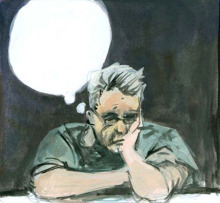 Writer’s block has nothing to do with writing.
Writer’s block has nothing to do with writing.That might seem obvious. When a writer wants to write, but can’t get anything out, he’s blocked. Not writing. Blocked.
But it isn’t the writing that causes the block. Neither is it some psychological problem or an inability to conjure up the Muse of inspiration.
It’s because the writer didn’t put everything on little index cards first.
Read the rest of this post on my blog The Man of Twists and Turns,a/>.
Published on June 06, 2010 06:10
•
Tags:
arabs, crime-fiction, fatah, gaza, hamas, israeli, jews, matt-beynon-rees, middle-east, palestinian, writer-s-block, writers, writing
May 27, 2010
How to create empathy as a writer
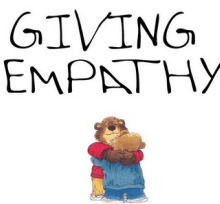 Malcolm Muggeridge (an old English literateur) once said that George Orwell “was no good as a novelist, because he didn’t have the interest in character.” Well, I didn’t need to tell you who George Orwell was, so you may doubt the judgment of the largely forgotten Muggeridge. But I think he was very close to an important factor for the novelist.
Malcolm Muggeridge (an old English literateur) once said that George Orwell “was no good as a novelist, because he didn’t have the interest in character.” Well, I didn’t need to tell you who George Orwell was, so you may doubt the judgment of the largely forgotten Muggeridge. But I think he was very close to an important factor for the novelist.Here’s why: Character creates empathy in a novel. It puts the reader in a relationship with the work. Muggeridge’s point was that politics were more interesting to Orwell than the people on whom he hung them. In “1984” we feel for Winston Smith because we imagine what it’d be like to be him – but we don’t really care that much for him as a character. In other words, if Orwell hadn’t had such a fabulous idea behind that novel, it would’ve failed because Winston was too much of an everyman.
Nonetheless, so much contemporary fiction fails the character test. Read the short stories in The New Yorker – which are fairly representative of today’s “literary” fiction – and you’ll generally see an authorial voice greatly distanced from the emotions of the characters. You’re not in a relationship with the characters, and you wouldn’t want to be in a relationship with the smart-ass authorial voice. Read the rest of this post on Matt Beynon Rees's blog The Man of Twists and Turns.
Published on May 27, 2010 05:40
•
Tags:
1984, crime-fiction, exotic-crime, exotic-fiction, fiction, george-orwell, ian-mcewan, israeli, jerusalem, malcolm-muggeridge, palestinian, the-new-yorker, wales, winston-smith
May 23, 2010
Israel prepares for next threat--nuclear?
 NABLUS, West Bank — During the Palestinian intifada, I sat on a dusty hilltop overlooking this most violent of West Bank towns with a dozen of the top Israeli officers in the area. The brigade commanders told their regional chiefs that all the police work and house-to-house fighting of the intifada had made their troops ill-prepared for a real war. “If we had to fight in Lebanon, my men wouldn’t know what they were doing,” shouted one.
NABLUS, West Bank — During the Palestinian intifada, I sat on a dusty hilltop overlooking this most violent of West Bank towns with a dozen of the top Israeli officers in the area. The brigade commanders told their regional chiefs that all the police work and house-to-house fighting of the intifada had made their troops ill-prepared for a real war. “If we had to fight in Lebanon, my men wouldn’t know what they were doing,” shouted one.In 2006, that prediction was proven largely true, as Israeli forces were matched on the ground by Hezbollah’s militia. The air- and missile-warfare that went on over their heads was devastating to Lebanese and Israeli civilians, but Israel’s military planners were shocked by the difficulties faced by their ground troops.
For Israel, the threat these days is clear. Nablus is quiet, its gunmen subdued by Palestinian police who are trained with American help and the economy bolstered by American aid. This week, Israeli soldiers will run through a series of exercises to practice for a potential conflict with Hezbollah on the country’s northern border.
The main unknown in those exercises: How long does Israel have before the threat of nuclear attack will come into play?
Israeli government officials and security chiefs are reluctant to talk about how Israel might respond if Iran succeeds in obtaining nuclear weapons. They prefer to emphasize the destabilization of the international balance of power should such a situation arise. “We should focus on prevention,” Intelligence Minister Dan Meridor told international journalists last week. “Prophylactics, rather than dealing with unwanted results.”
So the disdain in Jerusalem was absolute for the Turkish-Brazilian deal announced last week under which Iran would ship some of its uranium to Turkey. To use Meridor’s biological analogy, that was about as much use as a prophylactic with a big hole in it. The Iranians were playing for time, Israeli officials said, and the United States was right to override the deal and go for strong sanctions.
Trouble is, most Israeli officials don’t expect those sanctions to work any more. Israel is starting to come to terms with a burgeoning Middle Eastern nuclear arms race. It will start the race with a lead — it has had nuclear weapons for four decades. But with Iran coming up on the rails and Saudi Arabia and Egypt, unwilling to be potentially threatened by Tehran, soon joining the competition, the dangers to the Jewish state are considerable.
It’s de rigueur for international strategists to say that Israel isn’t the country that should be most worried by Iranian nuclear ambitions. Instead, they posit the Gulf states, Shia Iran’s Sunni Muslim rivals, as the most at-risk.
There’s something to that. Yet Iran’s biggest success in exporting Islamic Revolution has been through Hezbollah in Lebanon. It also now has a direct line to Gaza with Hamas, which it helps to bankroll. Both would be easy places from which to use nuclear capability to influence regional — or even world — events.
Israel’s response to the Iranian move toward nukes is complicated. Its actions are limited. A potential aerial attack on Iran’s nuclear facilities would be difficult without bunker-buster bombs or coordination with the U.S. and the Arab countries over which Israeli jets would have to fly.
Diplomatically, Israel has little faith that sanctions can do anything more than delay an Iranian bomb. Why? Because it has experience of its own in negotiating about an issue so long that its negotiating partner in the end accepts a sliver of what it had originally asked for — and even then the negotiations can start again without reference to previous deals.
That’s a familiar tactic in Jerusalem, which has frequently confounded Western negotiators. Just as Iran has infuriated Washington with the sanctions issue, agreeing to something when total breakdown seemed imminent and pulling back just before it was required to act.
In public, at least, Israeli officials are forced to push for stiff sanctions, as if they thought that'd make a difference. But rather than believing Iran’s nuclear program will be ended, they view the sanctions as a way of buying time for Israel to prepare its troops exercises like those this week and to ready more advanced missile defenses.
Congress this week voted for President Barack Obama’s plan to give $205 million to Israel to fund its short-range missile defense system. That’s vital to Israel now, given Hamas’ rockets in Gaza, which have Tel Aviv in range, and Hezbollah’s ability to hit any place in Israel with some of its 42,000 missile arsenal. But it will only be more important once the equation has a nuclear component.
(I posted this on Global Post.)
Published on May 23, 2010 01:46
•
Tags:
brazil, crime-fiction, dan-meridor, gaza, global-post, hamas, hezbollah, iran, israel, israeli-army, israelis, jerusalem, journalism, lebanon, middle-east, nablus, nuclear-weapons, palestine, palestinians, tehran, turkey, west-bank
May 20, 2010
Jimmy Carter, apartheid, hemorrhoids and Matt Beynon Rees
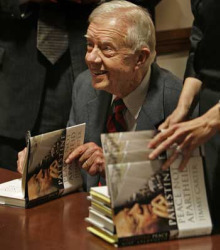 I often receive emails from book stores, amazon.com, Barnes and Noble, and online literary sites telling me how much I’d like the novels of Matt Beynon Rees. I’m delighted to see these emails, which are based on my other purchases and interests, as only I can truly know just how much the novels of Matt Beynon Rees have changed my life. (Try them, I’m sure you’ll agree.)
I often receive emails from book stores, amazon.com, Barnes and Noble, and online literary sites telling me how much I’d like the novels of Matt Beynon Rees. I’m delighted to see these emails, which are based on my other purchases and interests, as only I can truly know just how much the novels of Matt Beynon Rees have changed my life. (Try them, I’m sure you’ll agree.)Of course, I also get the occasional email informing me that if I like Matt Beynon Rees, I might also enjoy another author named in the email. Well, they’re half-way there, because of course I DO like Matt Beynon Rees. No ifs. So I always have to look to see if they’re right about the second part.
The links are sometimes obvious – “if you like Matt Beynon Rees, try [insert crime novelist’s name here:]” – and occasionally baffling though thought-provoking. I had one a few weeks back suggesting fans of Matt Beynon Rees’s Palestinian crime series would really dig a nonfiction book about a cyclone that hit Burma in 2008.
The latest of these connections was no doubt the most bizarre. I clicked on an email from an online book blog a few days ago: “If you like Matt Beynon Rees, we think you’ll enjoy Jimmy Carter.”
Wow, I thought, how did they know that I, too, have lusted after women in my heart.
It could be that the connection was the result of the review of the paperback version of my third Palestinian crime novel THE SAMARITAN’S SECRET in The New York Times—it was featured in the same column as a review of the softcover edition of the 39th President’s ultra-controversial 2006 work of nonfiction “Palestine – Peace Not Apartheid.”
Now here’s where I part with the “If you like Matt Beynon Rees, we think you’ll enjoy Jimmy Carter” email. Of you like Matt Beynon Rees, you’ll probably enjoy crime fiction. Or just fiction. Rather than “Palestine – Peace Not Apartheid,” in which the loveable old peanut farmer from Georgia accuses Israel of the worst kind of discrimination against Palestinians in the West Bank.
I don’t have an opinion on Jimmy’s book. I never read it. It has “Palestine” in the title and, as Graham Greene wrote, once one has lived in a place for a while one ceases to read about it.
Also it has “Apartheid” in the title. I have an opinion about what Israel does in the West Bank. I’m not going to get into it here, but in a (pea)nutshell, I think it’s a mistake to compare Israeli policy to apartheid, because then the debate shifts to the similarities and differences between South Africa’s old regime and Israel’s occupation – instead of talking simply about what Israel does and what’s wrong with it.
As soon as Smiling Jim put “apartheid” in his title, his book’s content was largely ignored. Pro-Israel mouthpieces could condemn him as an anti-Semite simply for comparing Israel to the unlamented and certifiably pariah regime in Pretoria. Game over. Jimmy even issued an apology a couple of years ago to all Jews on Yom Kippur. As though saying something critical of Israel is somehow a criticism of all Jews. As though there weren’t any Jews who agreed with him about Israel’s policy toward the Palestinians. Game over with a slamdown.
For me, as for many others, Carter has been a mildly useful voice for decency in the world. Though he also represents something a little pitiful, as one might witness in the song “Jimmy Carter” by my favorite band, Detroit whacksters Electric Six:
“Like Jimmy Carter,
Like electric underwear,
Like any idea that never had a chance of going anywhere….”
However, the decisive element in the question “If you like Matt Beynon Rees, we think you’ll enjoy Jimmy Carter” is a matter of personal animus. In fact, it’s a family insult suffered by the Rees’s of 32 Neath Road, Maesteg, Mid-Glamorgan, Wales, at the hands of James Earl Carter Jr., 1600 Pennsylvania Avenue, Washington, D.C.
My grandfather Tom Rees read in the Western Mail that then-President Carter was suffering from hemorrhoids. Tom had faced the same ailment some years before and had found nothing eased the feeling of defecating broken glass, until he switched to Allinson’s wholewheat bread. He wrote a letter to the White House in his careful cursive script, letting the leader of the Free World know what he needed to do to poop painlessly.
He didn’t expect any public recognition. But he assumed he’d get a polite note.
Perhaps Carter’s people knew that my grandfather was a former Communist Party member and figured the brown bread was a plot of some sort to keep the Commander-in-Chief on the can and away from the nuclear button, while the Reds swarmed Capitol Hill. In any case, the President never wrote back. Not even a “President Carter has read your inquiry with interest, but regrets that he will not be able to make it part of United States planning and policy at this time, though he is sympathetic to your cause.”
My grandfather continued to consume wholewheat bread, even at a time (the 1970s) when those around him considered it to be a strange fad akin to today’s no-nightshades tomato-free diets.
That’s why I don’t like Carter. Not because of apartheid. Because of hemorrhoids.
I wonder if Jimmy ever got them cured. Maybe he mentions it in his book. Perhaps I ought to read it after all…
Published on May 20, 2010 06:43
•
Tags:
amazon-com, apartheid, barnes-and-noble, crime-fiction, detroit, electric-six, fiction, georgia, glamorgan, graham-greene, hemorrhoids, israel, jews, jimmy-carter, maesteg, matt-beynon-rees, middle-east, new-york-times, palestine, palestine-peace-not-apartheid, palestinian, pennsylvania-avenue, pretoria, south-africa, the-samaritan-s-secret, wales, washington, west-bank, white-house, yom-kippur
May 13, 2010
Cameron can't solve English i.d. crisis
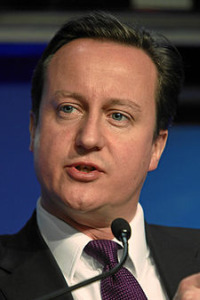 I was at Oxford University at the same time as Britain's new prime minister. But while I spent all my free time at a famous old pub opposite the historic Bodleian Library with a pint of Guinness in the company of some old Irish porters, I never saw David Cameron there. Which makes me doubt his suitability for office.
I was at Oxford University at the same time as Britain's new prime minister. But while I spent all my free time at a famous old pub opposite the historic Bodleian Library with a pint of Guinness in the company of some old Irish porters, I never saw David Cameron there. Which makes me doubt his suitability for office.That's not because I think the prime minister should be overfond of alcohol (at Oxford, Cameron was a member of a very upper-crust private drinking club famed for smashing places up). Rather, it's because Cameron is the wrong man to unite the pub-drinkers and the rowdy aristocrats -- and all the other splinters of a society still shattered by Margaret Thatcher's destruction of the old identity of Empire.
The coalition Cameron will lead reflects an identity crisis among the English that has developed in the two decades since Thatcher's reign. It's much deeper than mere political divisions, and I don't think he's equipped to resolve it.
Read the rest of my article on AOL News.
Published on May 13, 2010 23:20
•
Tags:
aol-news, britain, david-cameron, england, english-identity, margaret-thatcher, matt-beynon-rees, oxford-university, politics, prime-minister
'Exotic' crime fiction makes unpalatable places bearable
 “Exotic” crime fiction has taken off in the last decade. People want to read about detectives in far-off places, even if they don’t want to wade through learned histories of those distant lands.
“Exotic” crime fiction has taken off in the last decade. People want to read about detectives in far-off places, even if they don’t want to wade through learned histories of those distant lands.Many of the biggest selling novels of the last decade have been “exotic crime.” You’ll find a detective novel set almost everywhere in the world, from the “Number One Ladies Detective Agency” in Botswana through Camilleri’s Sicily to dour old Henning Mankell in the gloomy south of Sweden.
The success of my co-bloggers at International Crime Authors – with their detectives plying their trade in Thailand, Laos, and Turkey, alongside my Palestinian sleuth Omar Yussef – is also proof that this taste for international crime is more than just a publishing fad. The novels aren’t just Los Angeles gumshoe stuff transported to colder or poorer climes.
Here’s what I think is behind it:
Read a history book or a book of contemporary politics. Often you’ll find a list of the enormous numbers of people destroyed around the world by war and famine and neglect. You won’t get any sense that the world…makes sense. Crime fiction doesn’t purport to save the planet, but it does demonstrate that one man – the detective – can confront a mafia, an international espionage organization, a government and come out with at least a sliver of justice.
And justice is one of the few ideas which can still inspire.
Readers also prefer crime fiction about distant countries over so-called “literary” fiction about such places.
That’s because crime fiction gives you the reality of a society and also, by definition, its worst elements — the killers, the lowlifes — but it also gives you a sense that a resolution is possible. (See above.)
Literary fiction, by contrast, often simply describes the degradation of distant lands. If you read Rohinton Mistry’s “A Fine Balance,” for example, you probably thought it was a great “literary” book, but you also might’ve ended up feeling as abused as his downtrodden Indian characters without the slightest sense of uplift.
Crime fiction doesn’t leave you that way.
Now, that’s also true of the Los Angeles gumshoe. But the international element gives us something else to wonder about in these new novels. Not just because the scene is alien. Rather, it’s because we all trust to some extent that bad guys in Los Angeles will go to jail — or become Hollywood producers. We have faith in the system. So a detective has some measure of backing from the system, and consequently novelists have to push credibility to its limits in order to make him look like he’s taking a risk, to make him look brave.
International crime, when it’s set in the Developing World in particular, can’t be based on that same trust in the just workings of the system. The lack of law and order in Palestine, as I observed it as a journalist covering the Palestinian intifada, was one of the prime reasons I had for casting my novels as crime novels. It was clear the reality wasn’t a romance novel. Gangsters and crooked cops in the West Bank suggested the more vibrant days of the US crime novel back in the time of Chandler and Hammett, when it was much harder to argue that a city or mayor or police chief wouldn’t be in the pocket of the bad guys.
When a detective goes up against such odds in international crime fiction, it’s truly inspiring.
For books that start with a murder, that’s not what you’d expect, but it’s the reason for the success of this new exotic avenue of the crime genre.
Published on May 13, 2010 01:37
•
Tags:
a-fine-balance, alexander-mccall-smith, andrea-camilleri, crime-fiction, dashiell-hammett, detective-fiction, exotic-crime, henning-mankell, italy, laos, los-angeles, middle-east, omar-yussef, palestine, palestinians, raymond-chandler, rohinton-mistry, sweden, thailand, turkey



